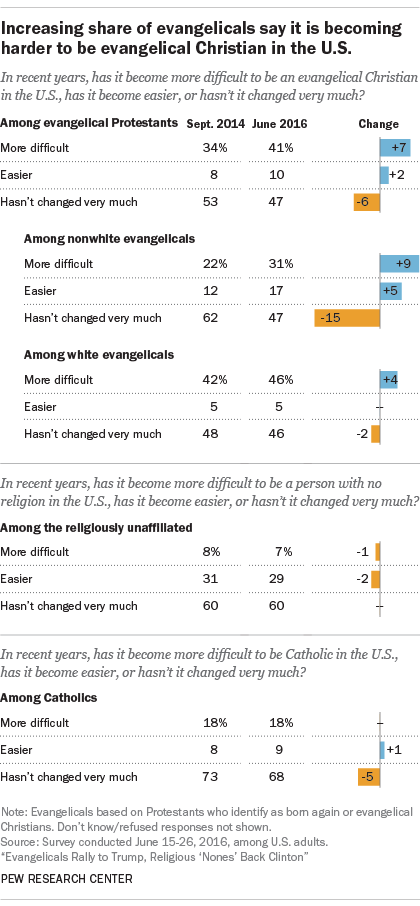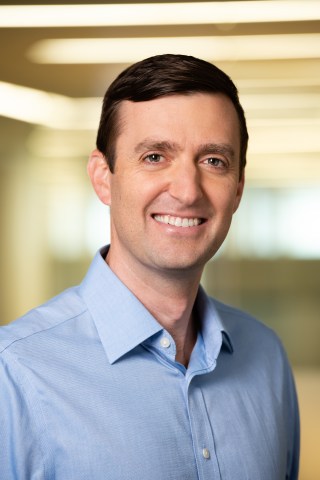The U.S. has long been a Christian-majority nation, but major social changes may be making at least one segment of Christians — evangelicals — feel like America is becoming a more difficult place for them to live.

A growing share of self-identified “evangelical or born-again” Protestants (41%) say it has become more difficult to be an evangelical Christian in the U.S. in recent years; just 34% answered the question the same way in September 2014. Only about one-in-ten evangelicals now say it has become easier for their community in the U.S., while nearly half (47%) say it has not changed very much.
Some of this feeling may stem from the fact that the country is becoming more secular: A rising share of Americans do not identify with any religion, while a shrinking portion of the population is Christian. Another factor may be the spread of legal same-sex marriage nationwide and increasing social acceptance of homosexuality, developments with which many conservative Christians disagree. And other clashes with the values many conservative Christians hold continue to play out across the country, whether it be over the teaching of evolution in public schools, the presence of religious displays on public property for Christmas or whether public school cheerleaders can put Bible verses on their banners.
Nearly half of white evangelicals (46%) say things are getting tougher for evangelical Christians in America, similar to the share who took this position in the 2014 survey (42%). In addition, 31% of nonwhite evangelicals (mostly blacks and Hispanics) now say it has become more difficult to be an evangelical in the U.S., up from 22% two years ago.
Compared with evangelicals, Catholics feel less negatively about their place in America. Only about one-in-five U.S. Catholics (18%) say it has become harder to be a Catholic in this country, identical to the share who said this two years ago. One-in-ten (9%) now say it has become easier, while a solid majority (68%) say the experience of being a Catholic in America hasn’t changed much in recent years.
And among people with no religious affiliation, perceptions about their place in society are much more positive. Very few religious “nones” (7%) say it has recently become harder to be a nonreligious person in America, while far more (29%) say it has gotten easier. As with Catholics, these figures are little changed since 2014, and a clear majority of “nones” (60%) say the status of being a nonreligious person in the U.S. hasn’t changed very much lately.
